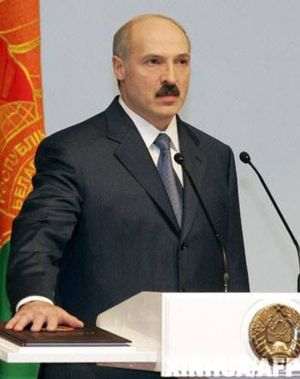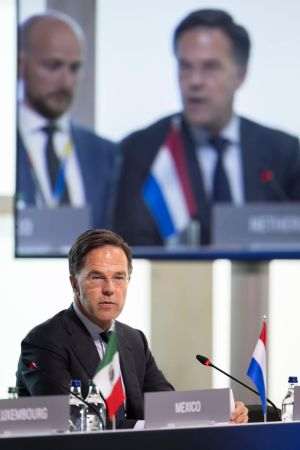Financing of the budget deficit from domestic sources must be made at a reasonable cost and with a degree of fluency, Mugur Isărescu, the Governor of the National Bank of Romania explained yesterday. The adjustment of the deficit is very important for the financial and price stability, as well as for the future economic growth of our country.
The governor said that, in the final period of last year, the state budget deficit increased by three percent of the GDP. "We are seeing deadlocks in the economy which are created by the payments the State postponed to its suppliers", NBR Government explained.
Because of this, by the end of Q1 2009, the Minister of Finance intends to pay all the outstanding invoices to companies in the private sector, Minister of Public Finance Gheorghe Pogea said.
"The most important thing at the moment are outstanding payments that we owe to the private sector. At the end of 2008, the total worth of unpaid issued invoices was three billion lei", said Pogea.
At the moment, the most important issue is the funding of the budget deficit, given that access to financial resources is no longer as easy as it once was.
Mugur Isărescu also explained that the NBR can not afford to spend "one penny" to finance the budget deficit, adding that, in the current circumstances, it is essential that the neutrality of the Central Bank is respected, and one alternative for funding the state budget deficit is the issuance of government bonds.
Romania didn"t have too many issues of state bonds, and "this is one of the reasons that we do not have a well developed secondary market for government bonds, as it is only developing now", said the Governor of the Central Bank.
"There are still banks which do not hold government bonds, and there were even more of them in autumn last year, and in such a case, they don"t have the possibility to access the Central Bank"s credit facility".
In order to access the credit facility from the Central Bank, commercial banks must have government bonds in their portfolio for short term borrowing, with a 14% interest rate.
Local banks are also requesting that the Central Bank allow the use of government bonds as a possible source of liquidity for commercial banks, and the revision of the way government bonds and swap operations are evaluated at the end of each year.
However, the NBR does not feel too good about the banks" proposal to hold the government bonds as a source of liquid investments, when they can always resort to lombard loans.
On the issue of accessing lombard loans, the Governor said: "The banks need to know how to access this facility, and in October they didn"t know the way to get it, they didn"t know which door to knock on, what phone number to call, or which form to fill out ".
The holdings in government bonds increased in the last three months, by more than 100%, from 12 to 25 billion lei.
Mugur Isărescu said that the Central Bank will continue to provide liquidity to the markets by all means possible to allow commercial banks to buy government bonds. For that purpose, the Central bank said it is extremely interested in the secondary market of state bonds and will continue to perform Repo and Reverse Repo operations.
He also explained that, according to NBR regulations, the bank"s solvency is calculated according to the quality of their assets, which can be improved by the amount of government bonds a bank holds.
The proposals of the Romanian Banking Association (ARB) are directed first of all at getting the NBR to support the rescheduling of loans in case borrowers can no longer afford to pay off their debts towards domestic banks.
Radu Graţian Gheţea, chairman of the RBA and of CEC Bank, said: "We want the creation of the environment needed for the streamlining of lending so as to contribute to economic growth, assuming there will be any, and to get involved in the development of the economy".
In the case of provisions, banks would like that a fraction of the guarantees granted by borrowers be treated as a provision, if the 90 day payment delay is exceeded, in order to allow banks to book smaller provisions.
Another thing would be to only consider the unpaid portion of the loan taken on by a client, instead of the entire loan, when booking provisions. Mr. Gheţea said: "We must be extremely careful when it comes to reducing provisions and it common sense. We have had talks on this matter, but we have decided the issue warrants further discussion".
On the same matter, the Romanian Banking Association feels that there is the possibility to provide an extension of the grace period from 90 to 120 or even 150 days before proceeding with the foreclosure of outstanding debtors.
The Association of Romanian Business People (AOAR) has requested that the Central Bank extend the grace period for the payment of loan installments to 150 days, in order to help borrowers which are experiencing difficulties.
Last but not least, the RBA feels that it is necessary that the regulations return to a previous version, where credit facilities obtained from the EIB, EBRD or the IMF are not taken into account when for the calculation of the mandatory minimum reserves. The chairman of the RBA added: "We want the return to this older norm, to allow banks to make better use of the money they have on hand".
Concerning a possible agreement with the IMF, (FMI), the governor of the Central Bank said that such an agreement would also involve expenses in the hundreds of millions of Euros, and Romania"s public deficit and public debt are just 2 - 3 billion Euros. The Ministry of Finance expects to obtain funding for most of this amount.
The cut of the minimum reserve requirement for banks" leu liabilities in October 2008 was a mistake, said Central Bank Governor Mugur Isarescu.
"At the time, I voted in favor of the cut, but it was a mistake that caused us problems. My colleagues were more cautious". The decision to cut the minimum mandatory reserve seemed natural at the time, but the situation which subsequently appeared on the market forced
forcing the central bank to sell euros to temper the unit"s fall.
On the other hand though, a loan from the EU "wouldn"t hurt" given our country"s ability to attract European funds, Isărescu said, who also said that he discussed this option with president Băsescu.
The volume of projects financed with European funds could reach 1.44% of the GDP in 2009, "five times higher than in 2008", according to the Minister of Public Finance.
Romania only attracted 176 million Euros out of 3,1 billion Euros, in the last two years, representing only 6% of the allocated volume.
During yesterday"s meeting, Gheorghe Pogea explained that "in the last part of last year, public spending increased quicker than revenues, with revenues earned amounting to only 32% of the GDP as against the estimated 37.2% of the GDP", which means a balance of some 7 billion Euros.
The Minister of Finance said: "We"ve been talking about economic growth of some 6% a year, while public revenues remain constant, and public spending continues to increase ".
Public investments are first on the list of priorities for the Government in 2009. Mr. Pogea claims that this year could see the adjustment of the public and current account deficits.
The package of anti-crisis measures proposed by the Government is intended to stimulate economic growth by increasing public investments.
The Government"s decisions are also looking to keep Romania"s medium-term goals unchanged, in particular the switch to the Euro, scheduled for 2014.




























































